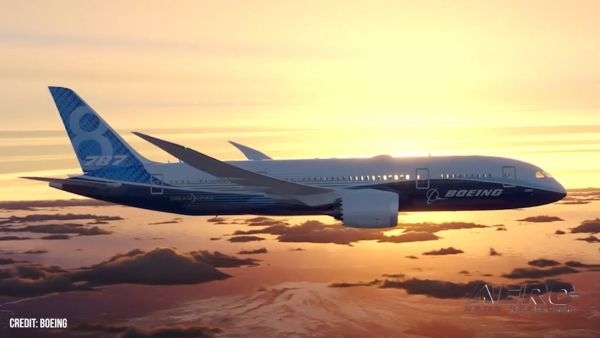Group's Goals Are Economic, Environmental
Is there a "green airline" movement? It may be too early to make
that determination, but Boeing and members of the Sustainable
Aviation Fuel Users Group, an airline-led industry working group,
say they have just added several leading air carriers as members.
Existing members welcome Alaska Airlines, British Airways, Cathay
Pacific, TUIfly and Virgin Blue.

Current airline members include Air France, Air New Zealand, ANA
(All Nippon Airways), Cargolux, Gulf Air, Japan Airlines, KLM, SAS
and Virgin Atlantic Airways. Boeing and Honeywell's UOP, a refining
technology developer, are associate members.
Since its launch in the fall of 2008, the User Group has
established a foundation of airlines, environmental organizations,
research projects and practices and principles that can help
accelerate the commercialization and availability of sustainable
biofuels.
User Group members have pledged to work through the Roundtable
for Sustainable Biofuels (RSB), which consists of leading
environmental organizations, financiers, biofuel developers,
biofuel-interested petroleum companies, the transportation sector,
developing-world poverty alleviation associations, research
entities, and governments. All RSB and User Group members agree
that working across sectors, interests and regions is the best
approach to ensure the next generations of biofuels are developed
in a sustainable manner.
Working through User Group representatives, aviation industry
input is being included in "Version 1" RSB principles and
standards, which will be the first widely reviewed and accepted set
of international standards for sustainable biofuel production.
These standards will be tested, improved and tailored via future
User Group and RSB stakeholder efforts and verified through
peer-reviewed research and development collaboration.

These strategic efforts by User Group members and RSB
stakeholders are focused on making renewable fuel sources available
that can reduce greenhouse gas emissions, while lessening
commercial aviation's dependence on fossil fuels and potentially
reduce aviation sector exposure to fuel price volatility.
In addition to previously announced research projects on algae
and jatropha curcus the group will also launch a sustainability
assessment of halophytes, a class of plants that thrive in
saltwater habitat, later this year. That effort will assess
lifecycle CO2 emissions and socio-economic impacts. Additional
details will be announced closer to the project launch date. All of
these sustainability assessments will be subject to scientific peer
review and used by the RSB process to guide improvements to
"Version 1."
"Aviation is stepping up and addressing its environmental and
fuel challenges and the work being done by these industry leaders
is at the forefront of that effort," said Billy Glover, managing
director, Environmental Strategy for Boeing Commercial Airplanes.
"Tremendous technical progress has been demonstrated over the past
several years, and as we move closer to approval to use these
advanced generation fuels, we are rapidly developing sustainability
practices and conducting ongoing research to ensure we remain on
the right path."
 Lockheed Hands Over Completed Artemis II Spacecraft
Lockheed Hands Over Completed Artemis II Spacecraft NTSB Final Report: Pulsar Super Pulsar
NTSB Final Report: Pulsar Super Pulsar Classic Aero-TV: Van Horn Rotor Blades -- Tail Rotor Replacements For Bell's 206
Classic Aero-TV: Van Horn Rotor Blades -- Tail Rotor Replacements For Bell's 206 ANN's Daily Aero-Term (05.02.25): Obstacle
ANN's Daily Aero-Term (05.02.25): Obstacle Aero-News: Quote of the Day (05.02.25)
Aero-News: Quote of the Day (05.02.25)



